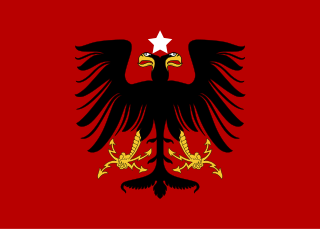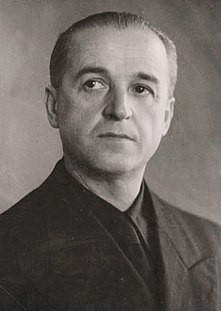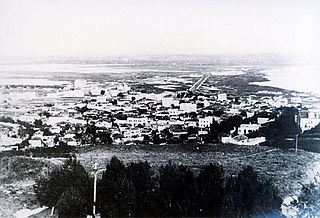| Mehmet bey Konica | |
|---|---|
 | |
| Born | 1881 Konitsa, Janina Vilayet, Ottoman Empire |
| Died | 1948 Rome, Italy |
| Occupation | Politician |
| Known for | Foreign Minister of Albania Congress of Durrës Congress of Lushnje |
Mehmet bey Konica (1881 – 1948), was an Albanian politician. He served three times as the Foreign Minister of Albania. He was the brother of Albanian writer Faik Konitza.
Konica was born in Konitsa, today's Greece, back then part of the Janina Vilayet of the Ottoman Empire. He was present in the Conference of Ambassadors in London in 1913. [1] He was appointed Foreign Minister on 22 June 1914 for a short period. In 1918, he headed the Congress of Durrës and served again as Foreign Minister. [2] After participating in the Congress of Lushnjë, he was appointed Foreign Minister once more and accompanied Fan Noli on his journey to the League of Nations. [3] On 28 March 1922 he was appointed plenipotentiary Ambassador of Albania in the UK [4] until 21 May 1925. [5] Although originally an opponent of Ahmet Zogu, Mehmet conducted negotiations in Rome on his behalf in 1926. He served thereafter as an informal political advisor and intermediary and represented Albania at the Balkan Conferences of 1931. [6]
During World War II, Mehmet bey Konica was initially interned in Rome by the Italians and, later, under the German occupation, was appointed Albanian Foreign Minister but refused to take up the position. He died in exile in Rome. [6]

Konitsa is a town of Ioannina in Epirus, Greece, near the Albanian border. It is located north of the capital Ioannina, and northeast of a group of villages known as the Zagorochoria. The town was built amphitheatrically-shaped on a mountain slope of the Pindos mountain range from where it overlooks the valley where the river Aoos meets the river Voidomatis.

The Vilayet of Janina, Yanya or Ioannina was a first-level administrative division (vilayet) of the Ottoman Empire, established in 1867. In the late 19th century it reportedly had an area of 18,320 square miles (47,400 km2). It was created by merging Pashalik of Yanina and Pashalik of Berat with sanjaks of Janina, Berat, Ergiri, Preveze, Tırhala and Kesriye. Kesriye was later demoted to kaza and bounded to Monastir Vilayet and Tırhala was given to Greece in 1881.

The Ottoman Empire, historically known in Western Europe as the Turkish Empire or simply Turkey, was a state that controlled much of Southeast Europe, Western Asia and North Africa between the 14th and early 20th centuries. It was founded at the end of the 13th century in northwestern Anatolia in the town of Söğüt by the Oghuz Turkish tribal leader Osman I. After 1354, the Ottomans crossed into Europe, and with the conquest of the Balkans, the Ottoman beylik was transformed into a transcontinental empire. The Ottomans ended the Byzantine Empire with the 1453 conquest of Constantinople by Mehmed the Conqueror.


















